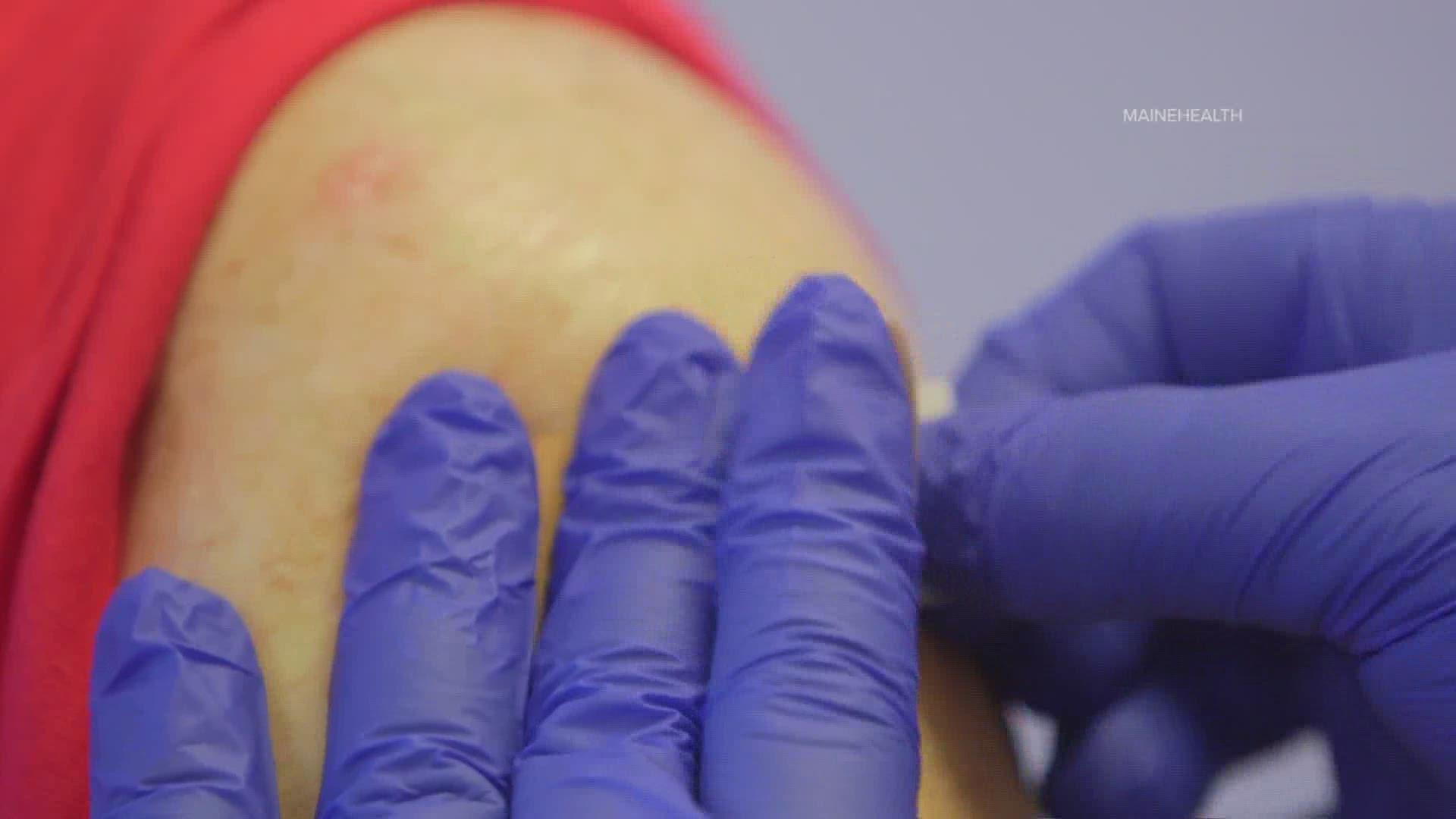PORTLAND, Maine — When Maine Governor Janet Mills announced the state's new age-based approach to the COVID-19 vaccine rollout on Friday, she explained that Maine would no longer prioritize vaccines to people in certain jobs or with certain health conditions.
"It replaces the prospect of complicated eligibility rules like those based on your type of work or specific medical conditions, the verification of which I'm very concerned would become difficult to implement and could inadvertently slow down the process of getting shots in arms," said Gov. Mills.
Now, Maine's approach is solely based on age. Starting March 3, people age 60 and older will be eligible. In April, people age 50 and older become eligible. It continues by decade until July, at which point anyone age 29 or younger becomes eligible.
"The approach is clear, straightforward. It's easy to understand, and, importantly, it's easy implement and easy to verify," said Mills. "Either you're 60 years of age or older, or you're not."
Maine Department of Health and Human Services Commissioner Jeanne Lambrew said the hospital systems and clinics can still choose to prioritize appointments for people they know have underlying health conditions.
"Within a category of eligibility, providers can prioritize those who are more at risk," said Lambrew.
The change to an age-based approach is not welcome news to those who had expected to get the shot under the old system.
"I’d suggest interviewing some teachers about the heartbreak and surge in anxiety that went with Friday’s announcement. Teachers’ mental health has been wrecked this year, and the government has done nothing but applaud our work as they turn their back on us," wrote Twitter user @mr_lynx17.
"Why aren't teachers prioritized for vaccines like health care workers are prioritized?" wrote Susan Niemoeller on Twitter.
Maine CDC Director Dr. Nirav Shah said his counterparts in other states noticed three consistent challenges with prioritizing vaccines based on job or health condition: verifying someone's employment or medical condition; determining what severity of medical conditions get priority; and noticing envy, stigma, or skepticism around others waiting in line to get a shot.
"People who were waiting in line at a large center looking around saying, 'that person doesn't look 70. Why is that person here? That person doesn't look sick,'" said Dr. Shah. "I heard that from colleagues of mine in other states, people openly calling out and saying, 'that person doesn't look like they are ready to go right now. How sick are they? What do they have that merits them to be vaccinated today?' and that is precisely not the system or the spirit that we want to be communicating right now."

